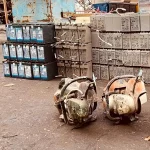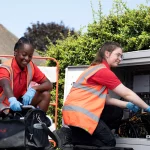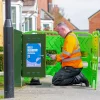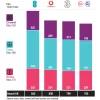BDUK to Review UK Council Compliance with Broadband Coverage Data
Too little, too late? The boss of the Government’s Broadband Delivery UK (BDUK) programme, Christopher Townsend, has promised to review which local authorities have so far failed to publish detailed coverage maps and related data down to the 7-digit postcode level, which is often needed by smaller ISPs to help them secure state aid funding.
Over the past year BT and many of the 44 local authorities involved in the BDUK scheme have been criticised for failing to publish detailed coverage maps and related data down to the 7-digit postcode level (here), with both sides often appearing to shift the blame between each other (e.g. issues of “commercial sensitivity” etc.). Never the less BDUK itself puts the ultimatel responsibility with councils and has repeatedly recommended that the data be published (here).
Advertisement
The data itself not only provides locals in each community with a greater level of detail and expected coverage, but it also helps smaller ISPs to identify whether or not their own schemes might conflict with the BT / BDUK roll-out (under state aid rules next gen broadband projects that overbuild aren’t likely to secure any public funding).
Christopher Townsend said (Computer Weekly):
“We are encouraging all projects to publish seven-digit postcode data but it is down to local authorities. I am aiming to conduct a review this month to see who is doing it and who is not.”
It’s unclear whether the results of Townsend’s review will be made public or indeed what, if any, impact it might have. However it’s worth noting that, over the past few months, the £20m Rural Community Broadband Fund (RCBF), which many smaller altnet ISPs were originally seeking funding from, seems to have increasingly been absorbed into local BDUK schemes. All this begs the question, if any change does come then will it be too late to make a difference?
Meanwhile BT frequently points out that such roll-out plans are very dynamic / tentative and subject to change due to developments on the ground, which means that related data can’t be considered 100% reliable until the project has finished. But by then many of the altnets, after waiting potentially years for a slice of the pie, might well have given up.
Mark is a professional technology writer, IT consultant and computer engineer from Dorset (England), he also founded ISPreview in 1999 and enjoys analysing the latest telecoms and broadband developments. Find me on X (Twitter), Mastodon, Facebook, BlueSky, Threads.net and Linkedin.
« UK Government Unveils Bidders for £10m Broadband Innovation Fund


















































Comments are closed